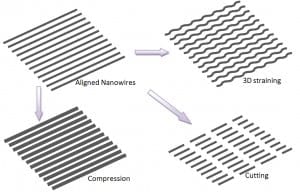
The death of important gut-dwelling parasites that we co-evolved with may be causing the rise in food allergies and other diseases.
Now scientists are working on finding ways to have us and our worms live in harmony again.
Jim Lahey, founder of in New York, fosters an obsession with microorganisms. Yeasts and bacteria give rise to his leavened sourdough breads–and he recently infected himself with intestinal worms to stave off a wheat sensitivity he attributes to working around flour dust. “These worms are meant to be in our bodies as part of human evolution.”
Lahey may be taking the experiments further than most, but he is not alone in thinking that modern, industrialized world may be making us sick because our good, clean standard of living is too easy on the body. Hygiene is a mixed blessing: Washing your hands, drinking clean water, and eating safe, refrigerated foods comes with vast reductions in childhood mortality. Yet, the hygiene hypothesis–an idea first put forward by epidemiologist David Strachan in 1989–suggests that chronic underexposure to germs and pathogens also corresponds with the rise of allergies and chronic inflammatory diseases.
Joel Weinstock, a physician and a gastroenterology researcher at Tufts University, has been studying the therapeutic potential of gastro-intestinal worms called helminths for over a decade. He says that changes in our flora and fauna influence health can make us more prone to diseases. “Think about the diseases that emerged in the 20th century: food allergy was exceedingly rare. Now, it’s very common.”
Evolution is a long slow slog and our genes haven’t changed. What has changed: the loss of “protective factors,” the life forms that dwell in our homes, our soil and our guts, including parasites called heminths. “Those organisms have very powerful influence and people always had them,” he says. “For the first time in our evolution, we had children grow up without them.”
When the immune system starts attacking our intestines with reckless abandon, the reaction can lead to inflammatory bowel diseases (IBD) like Crohn’s disease and colitis. Weinstock has found that intestinal worms act as powerful therapeutic agents. In one , he observed significant improvements in those treated with whipworm eggs compared to those treated with an inert placebo.
FastCoExist – Peter Smith
The Latest Streaming News: Hygiene hypothesis updated minute-by-minute
Bookmark this page and come back often
Latest NEWS
Latest VIDEO








